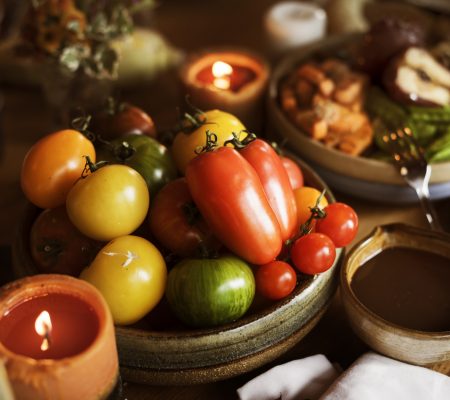How often do you ask yourself, “Where does this apple come from?” If your answer is “the grocery store,” bravo, you were probably the snarky kid in class that the teacher only called on as a last resort. The truth is, very few of us know where our food comes from and how far it travels to get to our plates.
Thanksgiving is a time for coming together. Far flung family members make their annual pilgrimage home, crossing entire states, maybe even oceans. Even if you or your family are traveling hundreds of miles this fall, your food doesn’t have to. Every extra mile your food has to travel means more fuel burned and more emissions released to get that food to your dinner table.

How important is the distance your food travels? It’s a complicated answer. Not all foods are created equal. For example, raising about two pounds of beef produces close to sixty pounds of carbon. However, two pounds of eggs produces about ten pounds, and two pounds of chicken produces about fifteen. CO2 drops even further for grains and vegetables. Eating lower on the food chain is an impactful way to green up your dinner table.
Agricultural emissions are the number one producer of fine particulate matter in much of the U.S., and agriculture is responsible for up to one third of greenhouse gas emissions around the world. Transportation of food accounts for a healthy portion of that, but what you eat and how it’s made are also important considerations. The majority of food production emissions come from the energy needed to grow food, raise livestock, distribute herbicides and pesticides, etc.
Opting for smaller, local or regional farmers who are more likely to employ sustainable and organic practices - and eating food when it’s in season - are good places to start. Not only will your meal be more sustainable, you’ll be helping to make your community more resilient.
Plan your own local, sustainable Thanksgiving dinner. Buying local isn’t only for the spring and summer months. Find what produce is in season near you as well as local meat, egg, and dairy producers here. Also check out the Indy Winter Farmer’s Market every Saturday downtown Indianapolis.
With a little planning, you can make your holiday more enjoyable for your guests and the environment alike - and that’s something we can all be thankful for.
